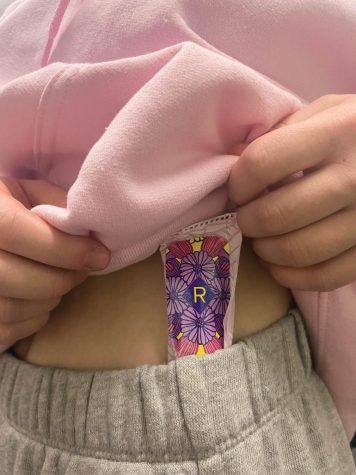To Vaccinate or Not?
November 5, 2021
I would like to start off by saying that this story is not intended to try and persuade you to get the vaccine or to not give the vaccine. This is simply bringing light to both sides as well as highlighting Martin students’ ideas. Please do your own research to decide what is best for you and your family concerning the vaccine.
Like everything else these days, vaccines are controversial, especially the Covid-19 vaccine. These past few months these vaccines be researched, formulated, and rolled out to the general public right before our eyes. Some people might be left with questions concerning the safety and effectiveness of the vaccine, while others are 100 percent trusting of the science.
Although the vaccines seemed to be developed too fast to also be effective, it is important to note that the CDC has been conducting research on mRNA vaccines years prior during Obama’s presidency to the Covid outbreak. A good way to understand this science is to think of mRNA vaccines as a Lego that is able to have something “snapped to it.” When the virus started, the mRNA vaccines “snapped” a Covid protection building block to it.
The Johnson and Johnson vaccine, which is another popular vaccine given in the U.S., is a single-dose vaccine that does not use the same mRNA vaccine science as both Moderna and Pfizer. Instead, the J&J vaccine is an adenovirus vaccine that works with your DNA to create spike protein to ward off the Covid virus. However, the J&J vaccine is shown to be around only 66 percent effective in protecting against the virus.
It is also important to note that the Johnson & Johnson (not an mRNA vaccine), Pfizer, and Moderna vaccines were given to the public before obtaining final FDA approval.
It’s almost taboo to ask someone if they have or haven’t been vaccinated, ask for proof of vaccination, or even just ask what their personal opinions on vaccines are. People seem to be very passionate about whichever side of the spectrum, pro or anti-vax, they fall on.
“Everyone should get vaccinated,” senior Britney Vo said. “It saves lives.”
The Pfizer mRNA vaccine was the first of the Covid vaccines approved for ages 12 and up.
“I have both doses of the Pzier vaccine and will be taking the booster around December,” senior Kirstyn Dickey said. Dickey said she felt this free vaccine is a “privilege and honor.”
Although it was very difficult to acquire the vaccine around March of last year, (due to the “hierarchy” of who gets it first like nurses, the elderly, immune-compromised, etc. ). the Covid vaccine is now given free of cost and is available at walk-in appointments at almost every pharmacy, grocery store, and doctor’s office.
Vo said she received the vaccine in March of last year.
“My whole family got it,” she said. “And morally, it was to protect others.”
The Pfizer vaccine has been proven to be around 95 percent effective (percent depends on age) in preventing Covid in patients 12 years old and up. Side effects of the vaccine have also been recorded, most commonly fever, chills, headache, drowsiness, and full-body aches.
“I had no side effects after my first dose,” Senior Bailey Hays said. “But I had a fever, chills, body aches, and headache for about a day and a half after my second Pfizer dose.”
Although most people experienced short-lived side effects of the vaccine, others had a far different experience.
“The following months I felt fatigued every day and even with a lot of sleep it didn’t feel like enough,” Vo said. “Thankfully, I started to feel fine after two months or so.”
A common theme in teens getting the Covid vaccine is the idea that many of them had to go behind their parents’ backs for the sake of protecting themselves and others.
“Both of my parents are high risk but anti-vax and since I worked every day and would soon be at school, I decided I would be the bigger person and do my part to protect my family,” Dickey said.
While some students turned to their parents to help make the best choice for them in getting vaccinated, others decided that in being 18, they could take matters into their own hands and make the decision for themselves.
“This is my first vaccine since I’m now 18 and in charge of my health,” senior Livvy Monk said. “I didn’t do super intense research, I just watched the death rates of those vaccinated and unvaccinated.”
The Pfizer Covid vaccine is now FDA approved for anyone ages 12 and up, although it was still readily available before this approval.
“I can imagine having a vaccine be approved by the FDA is not a simple process,” Vo said. “So to have it approved shows more validity in the vaccine than ever.”
In Texas, 51 percent of people of vaccine age (12 and up) have received the covid vaccine. That leaves another 49 percent unvaccinated.
“I believe that even if you don’t believe in getting the vaccine, you should do the bare minimum and wear a mask in order to protect others and yourself,” Hays said.
